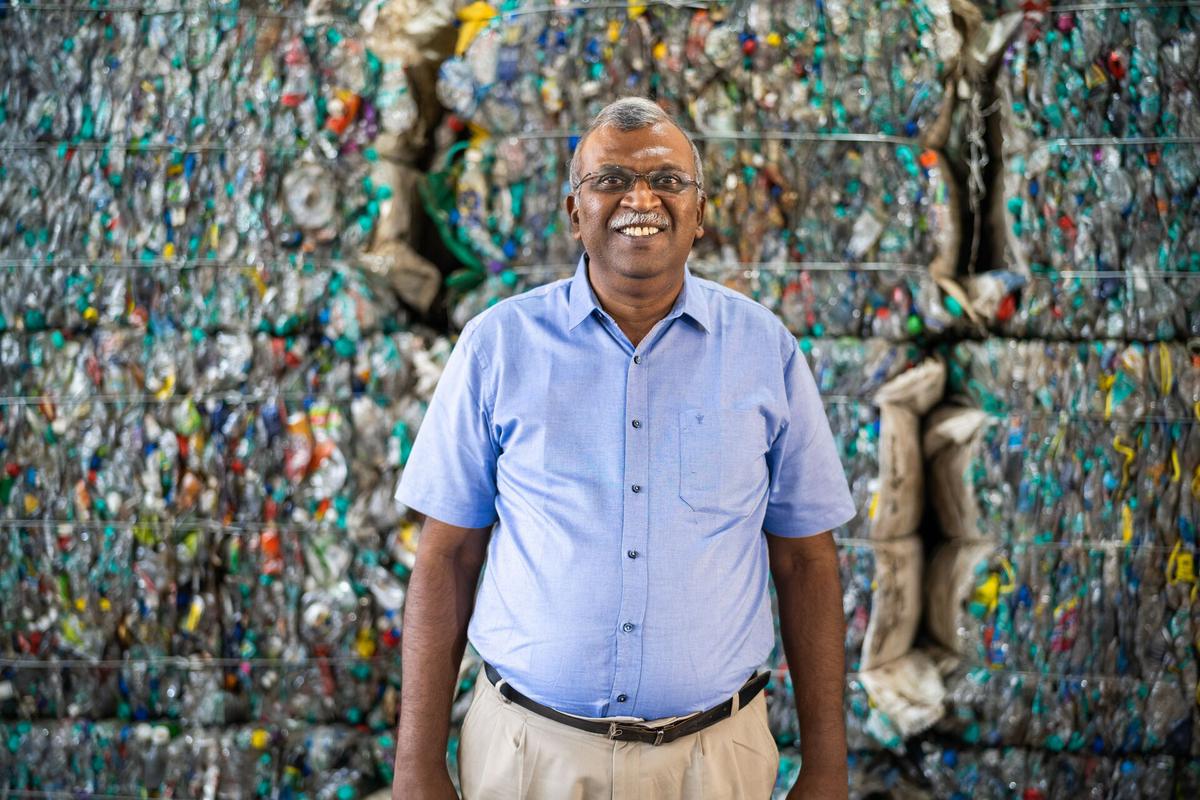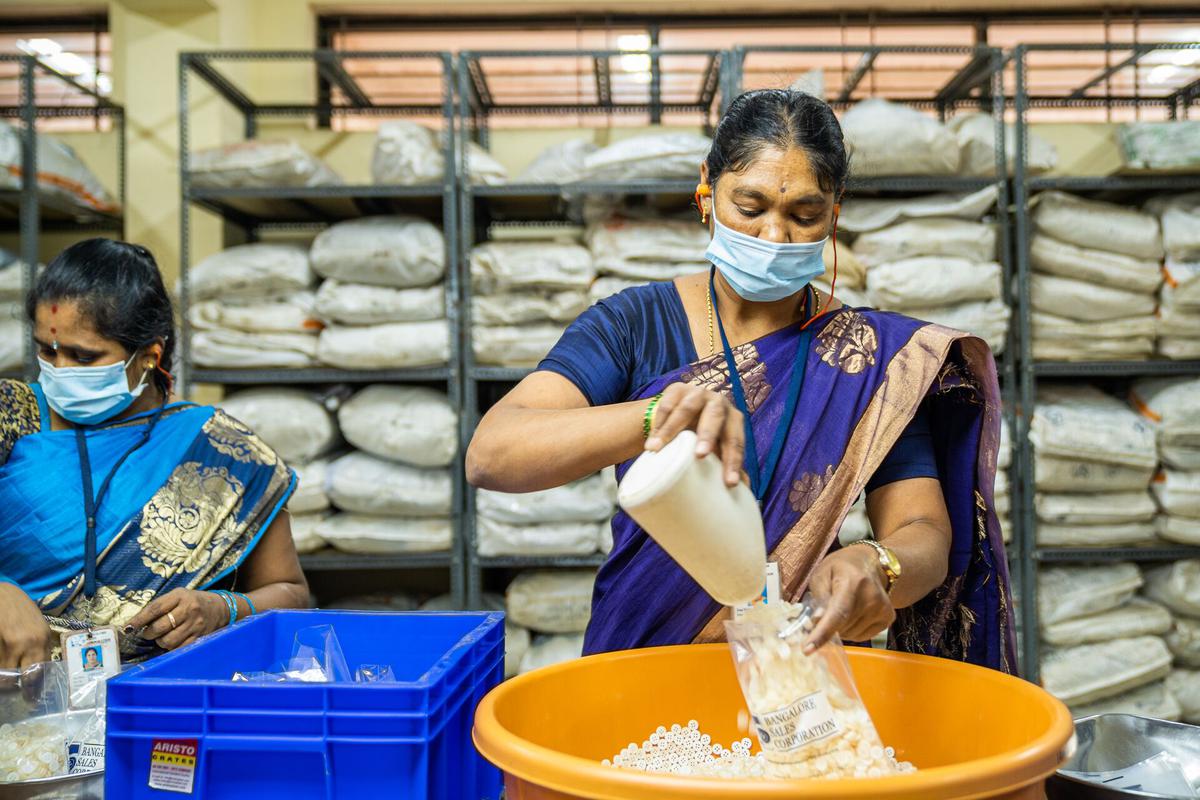Plastic waste collected by Bengaluru’s informal waste pickers turn into buttons for H&M’s garments produced in India
Plastic waste collected by Bengaluru’s informal waste pickers turn into buttons for H&M’s garments produced in India
After sustainability-led initiatives such as garment recycling and their most recent biodegradable line of baby clothes, global retailer H&M has now announced a programme that gives us the recycled button. Going forward, all H&M Group products such as shirts, blouses, skirts, among others, that are produced in India, will have these particular buttons partly crafted from post-consumer recycled plastic collected by waste pickers in Bengaluru.
This launch is part of H&M Foundation’s four-year initiative, Saamuhika Shakti (that supports Bengaluru’s informal waste pickers), which has partnered with the likes of social enterprise Hasiru Dala Innovations and WaterAid India, among others. Stockholm-based Maria Bystedt, Strategy Lead, H&M Foundation, says that Saamuhika Shakti has reached around 20,000 waste pickers and their family members (as of March 2022) and reached 2.6 million people from the general population of Bengaluru as part of the perception change campaign around waste pickers.
A cotton shirt sporting the recycled buttons
Tracking the last mile
Explaining the project’s inner workings, Shekar Prabhakar, co-Founder & CEO, Hasiru Dala Innovations, says that once H&M saw the benefit of engaging with his organisation in terms of the additional social impact for waste pickers and being backed by a Fair Trade Guarantee from the World Fair Trade Organization, the brief was simple. “They wanted assurance of a reliable supply of consistent quality PET flakes with traceability of the waste. The challenge was in determining a fixed price through the six-month season that they work on, while plastic waste behaves like a commodity linked to the oil prices. We were able to collaboratively agree on a pricing strategy that worked for both H&M and HDI,” he says.

Shekar Prabhakar, co-founder & CEO, Hasiru Dala Innovations
The buttons are traceable down to the source of the PET waste, names of the workers, social security, salaries and working conditions at the collection center. HDI is currently piloting a block-chain enabled software solution to showcase traceability. The short-term benefits for “wastepicker entrepreneurs”, as Prabhakar likes to call them, include a fair price, immediate payment through bank transfers, and assured offtake. ”The long-term impact includes the integration of waste pickers and informal waste workers in the circular economy supply chain by accessing end user markets, an interest among corporates to work with them, among others,” he says.

A worker packaging the buttons
Colour challenge
The eco-quotient aside, given how recycled plastic comes in varied shades and shapes, was maintaining uniformity for the buttons a challenge? The apparel giant says the colour does not vary from lot to lot, and they prepare one lot with the same colour and the shade can be adjusted to the previous lot by adjusting the colour pigment quantities. “There are actually no limitations when it comes to size, colour, etc. so in that case there is no difference from any other buttons,” says Daniel Baumann, product quality specialist at HM Assortment Support & Development, explaining that the in-house design teams at the different H&M Group brands have chosen the look of the buttons for the designs as they do for all garments.























